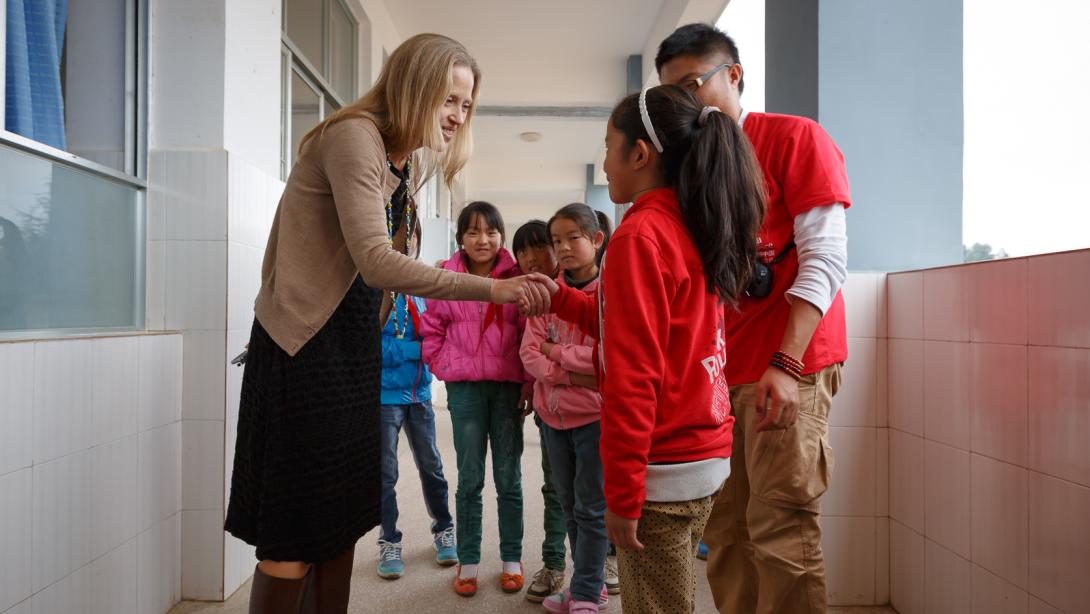Wendy Kopp on How Her Journey Has Shaped Her Vision

Jeffrey Walker, Chairman of the non-profit venture philanthropy fund New Profit, interviewed Teach For All’s CEO Wendy Kopp for the latest installment of his series on system entrepreneurs, Ensembles, Not Soloists. The discussion focused on how Wendy’s vision for addressing the injustices facing disadvantaged children has evolved over the course of her leadership journey. The following excerpt highlights some of the convictions at the core of the work of the organizations across the Teach For All network:
Jeffrey Walker (JW): Over 25 years of leadership in social problem solving, how has your vision for changing the education system evolved?
Wendy Kopp (WK): In the early years of Teach For America, I was thinking that we needed to focus on building capacity inside the education system; my view was that we could affect all the policy change we want, but in the end it wouldn’t matter without the capability to enact new policies in the system. When some game-changing political leaders were elected in some of the regions where we worked, I saw the power generated when political and educational leadership align.
What soon became clear, however, was that political leadership wasn’t sustainable without strong community support and leadership among families and teachers and other stakeholders. Ultimately, I’ve come to think that we really can effect system change, but only if we have enough leadership across the whole ecosystem around children.
As I’ve progressed in this work, I’ve grown in my conviction about how important it is that those who have themselves experienced the inequities we’re addressing guide and lead the work. I’ve seen how vital it is to have some of the most privileged people in society and members of the establishment gain proximity to inequity and determination to address it. But I’ve also seen that we move faster, more responsibly, and more sustainably when the push for change is defined and owned by the people within communities who know their reality and their aspirations. To progress otherwise is to perpetuate a world that is dominated by the privileged class, and to forego enlisting the incredible strength and perspective of the people who’ve endured the injustices for so long.
JW: Can you explain "collective leadership,” the central systems change approach at Teach For All?
WK: I think of collective leadership as having three parts.
First, it requires leadership around the whole ecosystem around children. For each individual child, we need to think about whether she attends school regularly or whether there are family responsibilities or other social issues that keep her away. We need to think about the quality of her health care, about whether she has access to clean water, about how many meals a day is she eating, and how nutritious those meals are. We need to think about how clear and high the educational expectations are for her, whether she has access to the teachers necessary to meet them, whether her family members and guardians support her in meeting those expectations. In short, we need people around the whole ecosystem—from parents to health workers to policy makers to teachers and school leaders—who are all aligned around a vision for children.
Second, collective leadership involves a coalition between the current members of the establishment— the most privileged people who currently hold the power—and, as I mentioned above, those who have experienced inequities themselves.
Third, collective leadership is about making space to build the relationships necessary to reflect together, learn together, grow the collective wisdom, develop shared vision, and collaborate. In the communities I’m closest to, in the United States, I’ve seen firsthand that it’s possible to have a whole bunch of incredible people—a diverse coalition of people—all working to change things for the better but all rowing in different directions without a shared vision for student success, They’re working within silos, with competing theories of change and without airing their disagreements, working so hard and giving it their best but without coming up for air to reflect together with others on what we’re learning collectively and what we most need to do to make progress. I’ve come to see—in part by learning more from people around the world and from different sectors about what’s at work where there is sustained system change—that creating space for relationship-building and collective reflection and co-creation is a big part of the key to developing collective leadership.
Read the full interview on LinkedIn.



